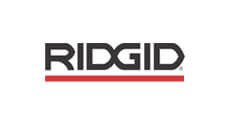Turn Down the Heat: Strategies for Water Heater Efficiency

Your water heater’s efficiency is vital to maximizing the energy your house uses. Which is even more crucial to be aware of during the cold winter months. Investing in techniques to improve the efficiency of water heaters results in substantial cost savings and a reduction in energy usage. This article will cover a variety of methods for increasing your efficiency, from recognizing the various kinds of water heaters to putting energy-saving measures in place.
Types of Water Heaters and Their Efficiency
Understanding the many types of available water heaters and their differing degrees of efficiency is critical. Tankless water storage systems, heat pumps, and solar water heaters are examples of standard varieties that are available on the market. Each type has advantages and disadvantages specific to cost, capacity, and energy efficiency. Knowing the features of each type of water heater can either help you choose a new one that best suits your requirements, or how to keep your existing system properly maintained.
Saving Energy and Money on Your Water Heater
Optimizing the efficiency of your water heater and cutting down on operating expenses requires the implementation of energy-saving measures. Here are a few successful tactics to consider:
- Reduce the Thermostat Temperature: Your water heater’s thermostat can be turned down to save energy. Think about adjusting the temperature to a productive, yet comfortable level.
- Insulate Hot Water Pipes: By reducing heat loss during water transportation, insulation helps to ensure that hot water reaches your faucets effectively.
- Install a Timer: By scheduling heating cycles, you can minimize standby energy losses and ensure that hot water is supplied when needed.
- Address Leaks Right Away: Any leaks in pipes or faucets should be fixed immediately. Over time, even tiny leaks can result in wasted water and energy.
- Choose Shorter Showers: To cut down on hot water usage, promote shorter showers or install low-flow showerheads.
Upgrading to an Energy-Efficient Water Heater
To realize significant long-term savings, consider replacing your water heater with one that uses less energy. For example, tankless water heaters eliminate standby heat loss associated with typical storage tank versions by only heating water when needed. Energy efficiency is further increased by solar and heat pump water heaters, which use renewable energy sources to operate. Even while an upgrade can appear expensive up front, the lower energy expenditures and increased efficiency make the investment worthwhile over time.
The Value of Consistent Maintenance to Increase Water Heater Efficiency
Routine maintenance is one of the most important ways to guarantee water heater efficiency. Maintenance that is done correctly helps avoid common system problems that can reduce efficiency, like corrosion, silt accumulation, and component wear. Here are a few maintenance guidelines to follow:
- Flush the Tank: To improve heating efficiency, periodically flush the tank to eliminate sediment.
- Examine the Anode Rod: To stop corrosion and increase the water heater’s life, inspect and replace the anode rod as needed.
- Test the Pressure Relief Valve: Ensure the pressure relief valve operates correctly to avoid pressure-related issues.
- Check for Leaks: Continuously check connections, valves, and pipelines for leaks and take immediate action to fix any faults.
You can lower the temperature on your water heater by combining energy-saving measures, wise decisions, and a model change to one that is more efficient (if needed).
For a wide selection of water heater supplies and professional guidance, contact Crosstown Plumbing, your go-to resource for all things plumbing. Contact us to see how we can improve your water heater’s efficiency for comfort and financial savings, or visit our website at: https://www.crosstownplumbing.com/








